
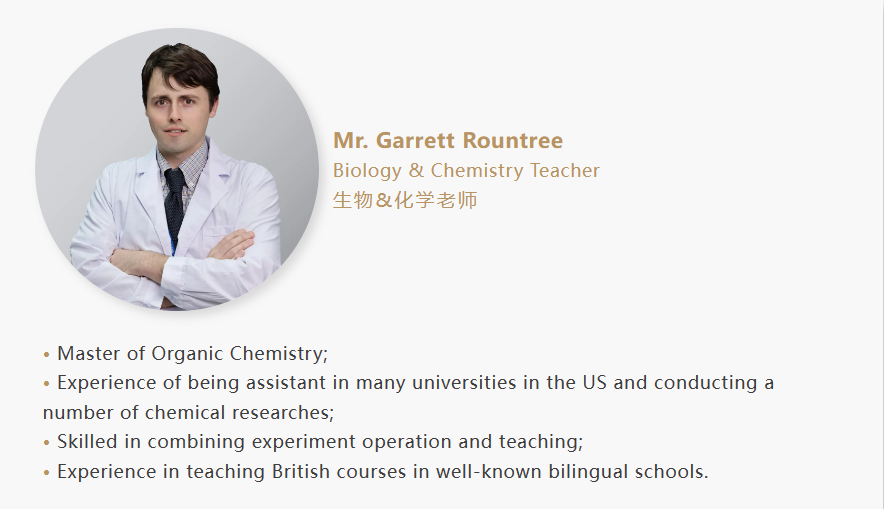
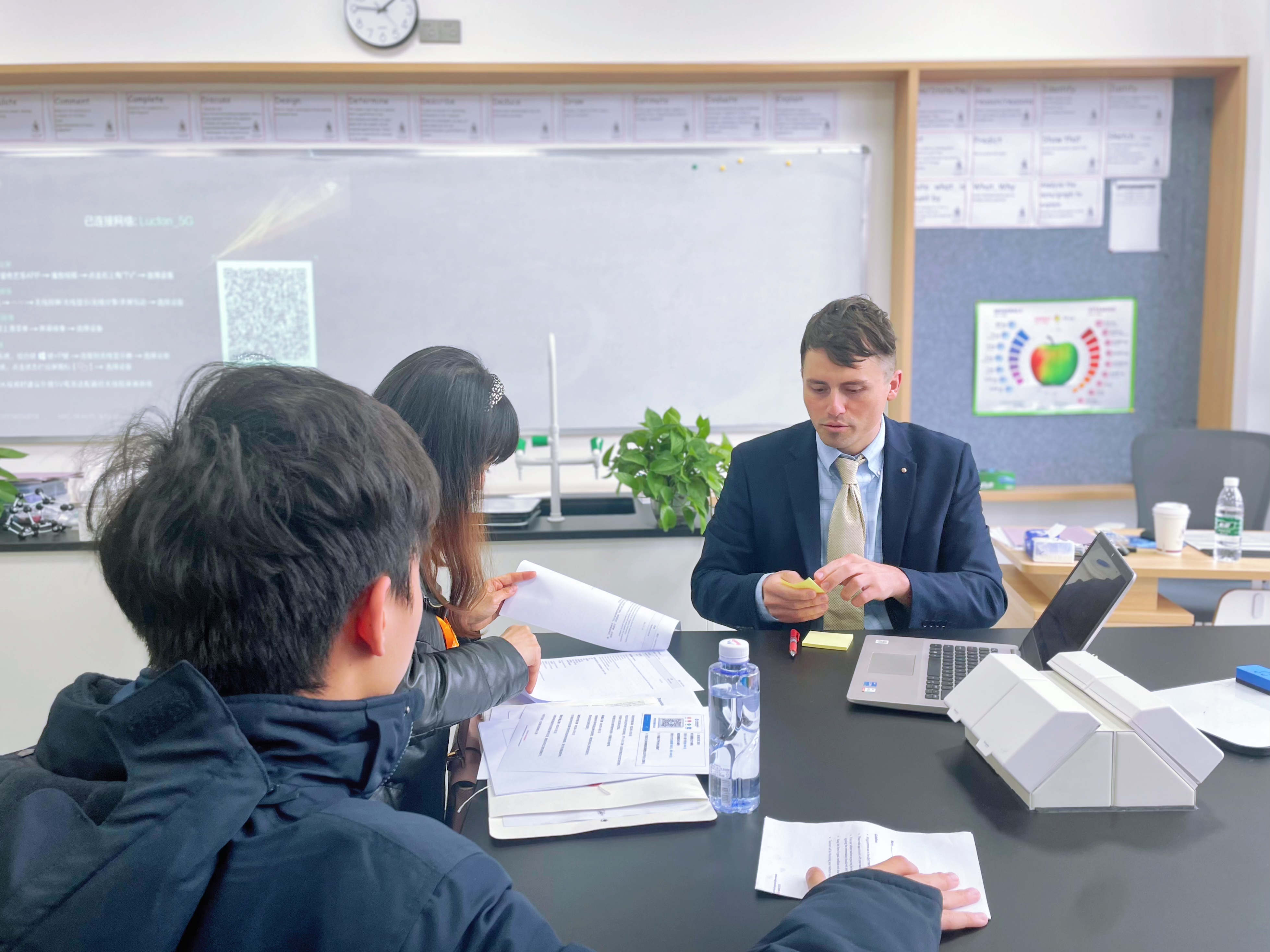
IGCSE Biology class covers the study of the cells, the human body, plant physiology, the environment, and genetics. Students will learn about parts of the cell, the human body systems including nervous, digestive, circulatory, reproductive, and gas exchange. They will also explore cell division, protein and DNA replication. Practical applications of biology, such as environmental biology, dissections of pig organs, and microscope use will be discussed. Through laboratory experiments and problem-solving, students will develop critical thinking skills and scientific inquiry. Biology is a fundamental subject for those pursuing careers in science, engineering, medicine, and many other fields.
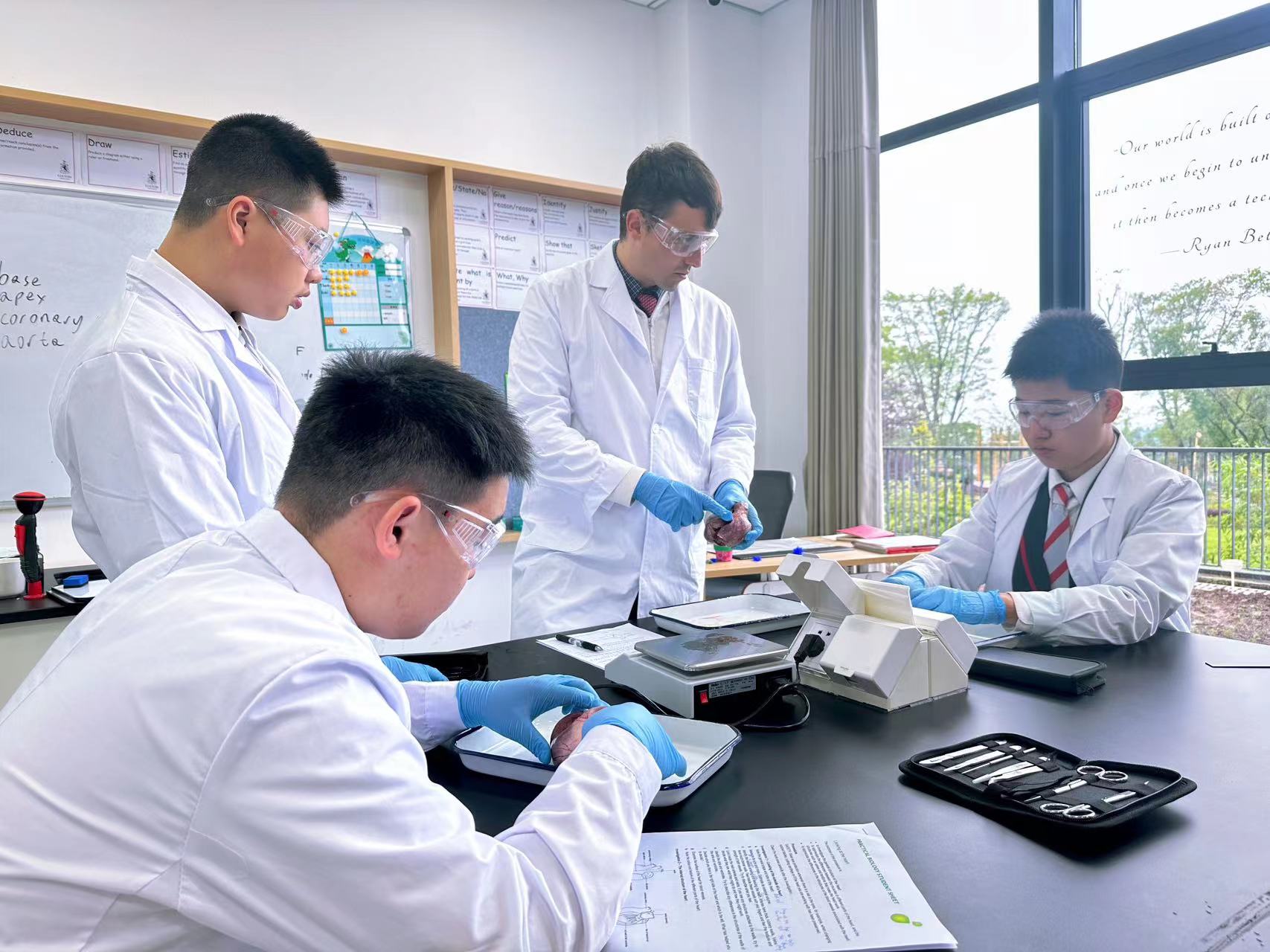
In IGCSE Biology class, students explored the fascinating world of life sustaining reactions, human organs, and genetic modification, and replication. They conducted exciting experiments such as dissecting pig organs and analyzing cells under microscopes. Throughout the year, they learned how biology impacted our everyday lives, from the food we eat to the materials we use. They also developed critical thinking and problem-solving skills as they worked through complex concepts and calculations. Now at the end of the year, students have gained a deeper understanding of the central science that connects all branches of science and technology.

IGCSE Biology takes students on a scaffolding journey from the very basics and slowly builds to larger concepts and applications.Initially, students learned how the organelles in a cell function to maintain cell life and homeostasis. Then, these cells are arranged into tissues, organs, and organ systems. Understanding of these basic cellular properties can then explain how organ systems such as respiratory and digestive work together to maintain life. DNA copying and protein synthesis principles are then introduced with the knowledge of bodily functions in mind. Lastly, the IGCSE students were introduced to the biology of genetic modification and cloning of animals to better suit human needs.
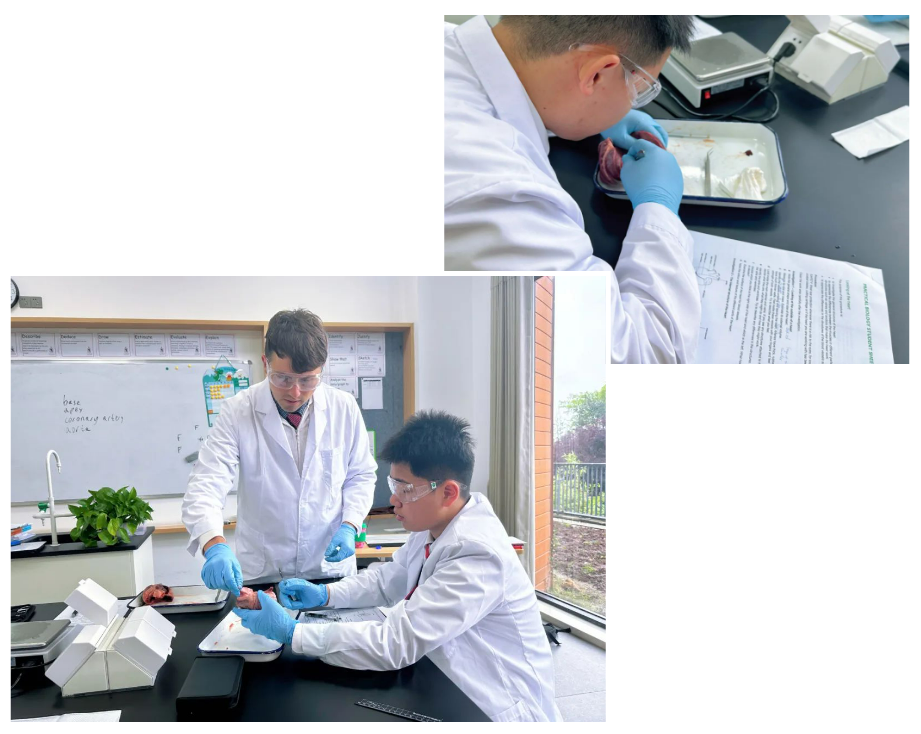
In addition to the knowledge learned, IGCSE Biology used complimentary experiments to increase concept understanding. Biology experiments are exciting and engaging for students. Some experiments performed this year include looking at cells under a microscope to identify the organelles which leads to a more solid understanding of the principles learned from the textbook. Another intriguing experiment performed was the dissection of pig organs including lungs, heart, and kidneys. This allowed students to see firsthand the structures they had seen in diagrams in their textbooks. These experiments provided hands-on learning opportunities that helped students to understand the fundamental principles and concepts in biology.
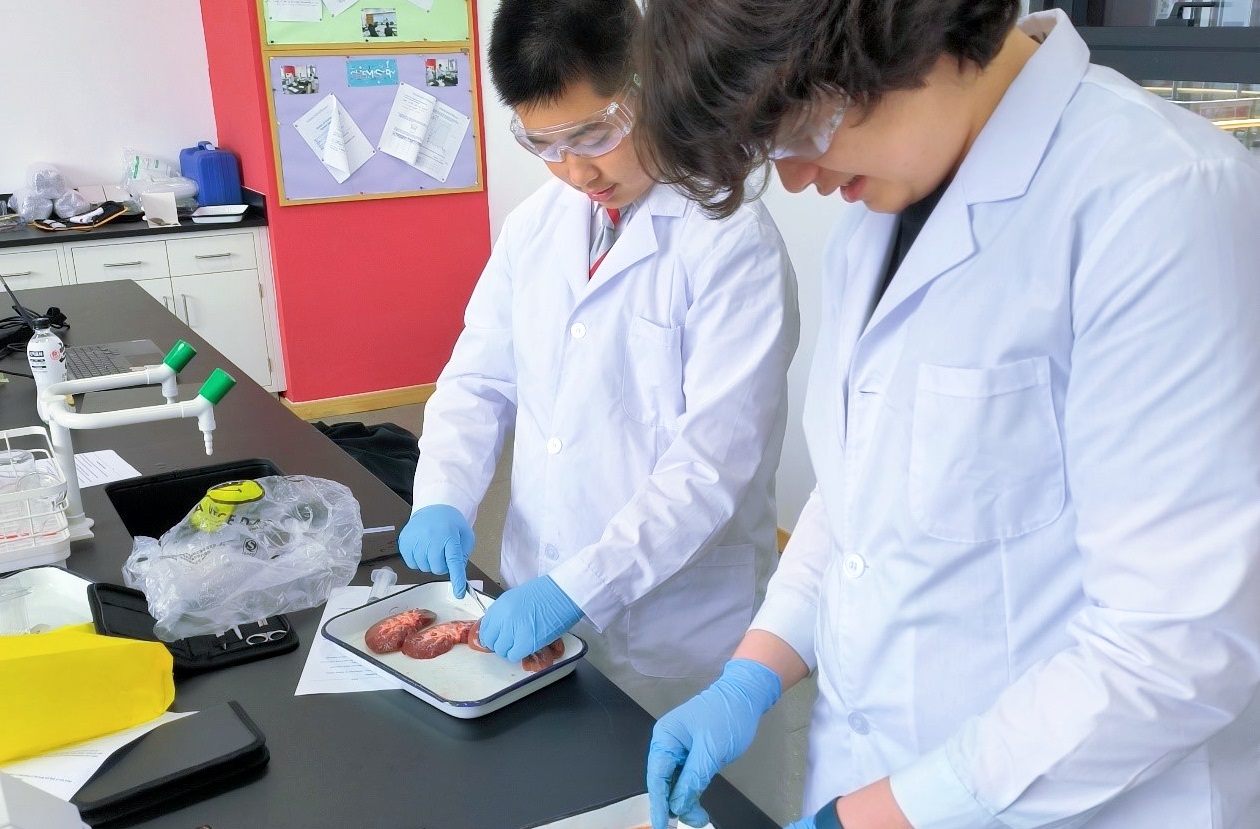
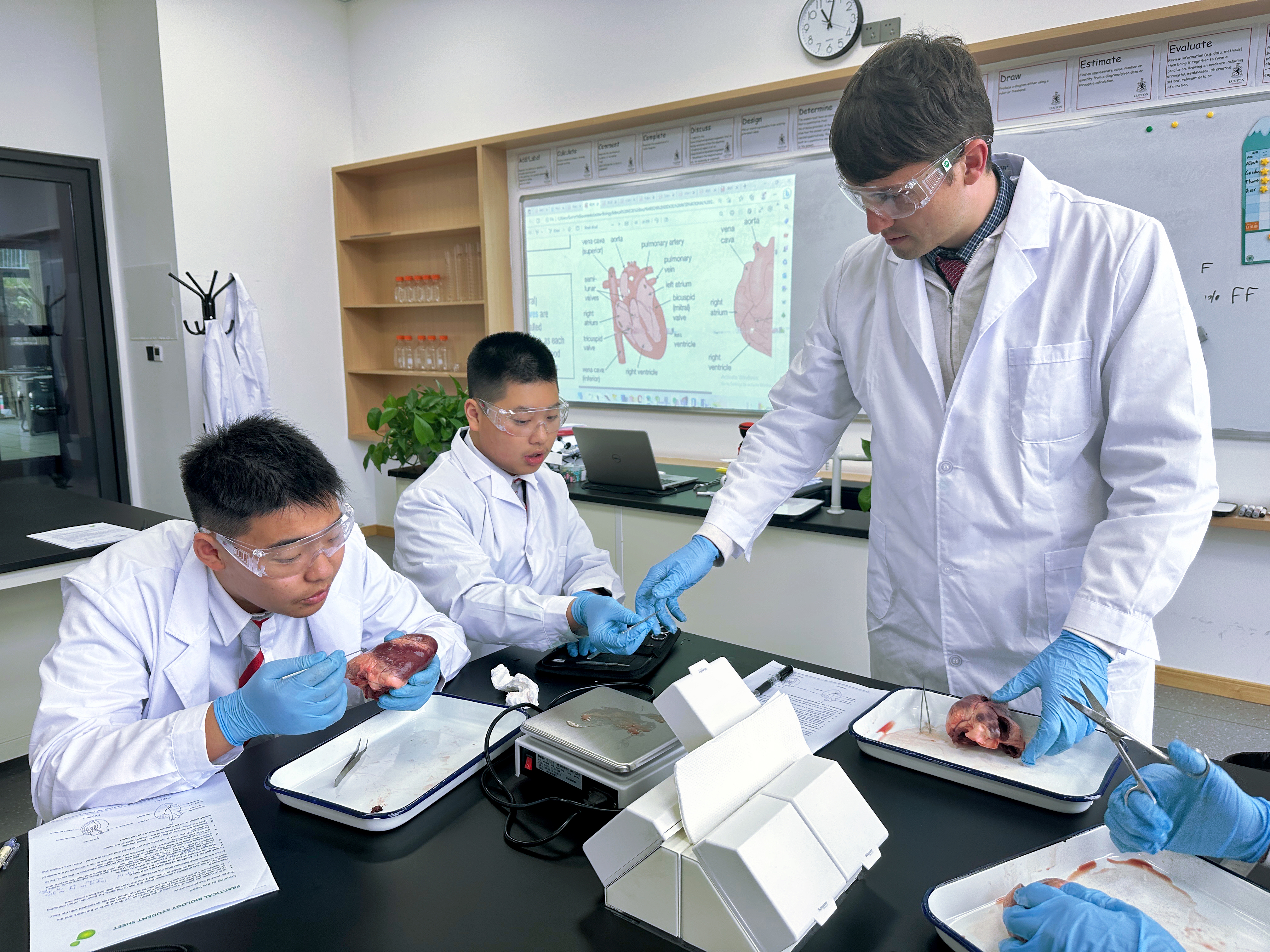
• Mr. Rountree helping Oscar Z and Gordon Z dissect a pig heart.

